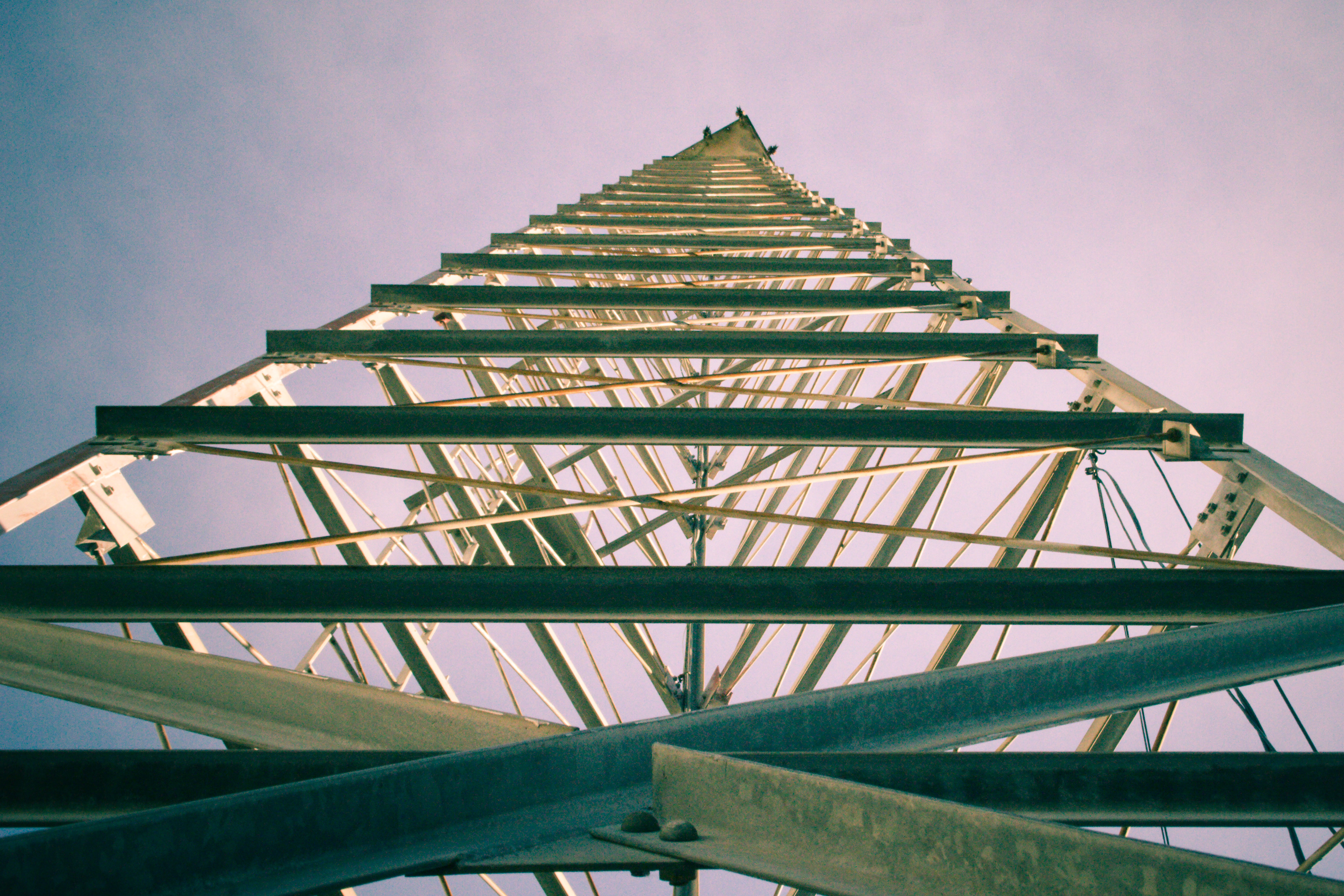Our weekly round-up of public service media related stories and headlines from around the world.
Click on the tab menu below to reveal the latest regional stories.
EGYPT: Constitutional Amendments Entrench Repression
HRW: Referendum Set in Grossly Unfree, Rights-Abusive Environment.
ETHIOPIA: After years of repression, Ethiopia’s media is free — and fanning the flames of ethnic tension
The Washington Post: From a collection of modest offices in a half-empty high rise, one of Ethiopia’s most prominent journalists publishes his weekly paper with a staff of just four.
GAMBIA: Anger in Gambia as the extent of Jammeh-era corruption and brutality surfaces
Deutsche Welle: The extent of corruption and brutality during The Gambia’s Yahya Jammeh-era is starting to surface via a truth and reconciliation commission set up by an administration recycled from that of the long-term president.
KENYA: KBC grappling with historical debt of Ksh 71.3b
KBC: The Kenya Broadcasting Corporation (KBC) is grappling with a historical debt of 71.3 billion shillings even as it works to position itself as the premier public broadcaster.
NAMIBIA: Access to info a concern despite high press ranking
The Namibian: Local media experts bemoaned the absence of a law on access to information after Reporters Without Borders ranked Namibia number one out of 54 countries in Africa.
NAMIBIA: Govt assures commitment to press freedom
New Era
NIGERIA: BBC and Channels Television launch first co-production: Gist Nigeria
BBC Media Centre: BBC and Nigeria’s Channels Television will be launching a new current affairs programme called Gist Nigeria on April 17 on Channels TV.
SABC: SABC bailout talks ongoing: Ndabeni-Abrahams
SABC News: Communications Minister Stella Ndabeni-Abrahams says her department is in ongoing discussions with National Treasury for a financial bail-out for the South African Broadcasting Corporation (SABC.)
SOUTH AFRICA: SABC welcomes newly appointed board members
SABC News: The SABC welcomed members of the newly reconstituted SABC Board to the corporation on Tuesday.
SOUTH AFRICA: South Africa elections 2019: Journalist safety kit
CPJ: South Africa, one of the media freedom beacons in sub-Saharan Africa, will hold national and provincial elections on May 8.
SUDAN: Journalists Picket Sudan News Agency for Liberation of Public Media
Dabanga via All Africa: The Sudanese Journalists Network (SJN) have called on its members, prominent media cadres and academics to participate in the Journalists March on Wednesday, “to liberate the Sudan News Agency” (SUNA).
TANZANIA: Government, Opposition disagree on press freedom
The Citizen
AFEX
UGANDA: Besigye radio station woes: UCC denies role
The Daily Monitor: The executive director of the Uganda Communications Commission (UCC), Friday insisted that the regulator has no hand in the incidents where police have raided and switched off radio stations hosting former presidential candidate, Dr Kizza Besigye.
GENERAL: African leaders put economic squeeze on journalists to prevent info free flow: media watchdog
RFI International: African leaders have switched tactics to prevent news from circulating by putting economic pressure on journalists, usually through an exorbitant tax or inflated media accreditation charges, according to media watchdog Reporters Without Borders’ 2019 report on press freedom in sub-Saharan Africa.
BANGLADESH: Despite Denials, Bangladesh Stifles Free Expression
HRW: In its annual press freedom index, Reporters Sans Frontières has dropped Bangladesh to 150th out of 180 countries – the lowest ranking it has ever received. Bangladesh’s Information Minister Hasan Mahmud disputed the report’s findings, saying there is “no censorship on news.”
HONG KONG: Hong Kong stumbles in Reporters Without Borders Press Freedom Index, down 25 places in 10 years
HKFP: Hong Kong has fallen three places in the latest Reporters Without Borders (RSF) press freedom ranking released on Thursday.
HONG KONG: Hong Kong Journalists ‘Pressured Not to Mention Independence’: Survey
RFA: Press freedom in Hong Kong is at a new low in the eyes of its residents and journalists, with the growing influence of the ruling Chinese Communist Party cited as the main factor in the decline, a new survey has found.
INDIA: Fake News and Agitprop
Aljazeera: We investigate the threat posed to democracy in India by those who use fake news to advance extreme nationalism.
INDIA: India election 2019: The debunked fake news that keeps coming back
BBC News: The largest democratic exercise in history is under way to decide who will govern India for the next five years – but there are serious concerns about the extent of false information circulating online.
INDIA: India’s other media boom
CIMA: Digital news and social media hold increasing sway over public opinion, but as the world’s largest democracy goes to the polls, it may be time to ask: Just how important is digital media in India?
INDIA: Political parties urged to promote a digital rights reform agenda
Via IFEX
INDIA: The unsolved assassination of a journalist
CJR: Ahead of India’s national elections, the mystery of Shujaat Bukhari creates a climate of fear and censorship.
MALAYSIA: M’sia climbs 22 places in Press Freedom Index due to May 9
Malaysiakini: Malaysia’s ranking on the World Press Freedom Index 2019 jumped 22 places to 123 out of 180 countries, according to Reporters Without Borders (RSF).
MYANMAR: Myanmar’s top court rejects final appeal by jailed Reuters journalists
Reuters: Myanmar’s top court on Tuesday rejected the appeal of two Reuters reporters sentenced to seven years in jail for breaking the Official Secrets Act, in a landmark case that has raised questions about the country’s transition to democracy.
NEPAL: Journalists in Nepal protest against cyber law
Business Standard: A group of journalists in Nepal organised a demonstration in Kathmandu on Wednesday, demanding abrogation of cyber law which, they said, is being used to muzzle the voice of media in the country.
SRI LANKA: Social media shut down in Sri Lanka in bid to stem misinformation
The Guardian: Ministers caution against people sharing unverified information about the attacks.
SRI LANKA: Sri Lanka attacks: government’s social media ban may hide the truth about what is happening
The Conversation: Sri Lanka has temporarily banned social media and messaging apps in the wake of the coordinated Easter Sunday attacks on churches and hotels across the country, which killed at least 290 people.
TAIWAN: Taiwan’s press freedom falls from best in Asia, behind South Korea
Focus Taiwan: Taiwan’s global press freedom ranking remained the same at 42nd, falling from the best in Asia last year to second, behind South Korea.
TAIWAN: Taiwan Seeks to Rein In Freewheeling Media with Tougher Anti-Fake News Laws
VoA
TAJIKISTAN: In Tajikistan, America’s beacon for a free press may have been corrupted
CJR: Radio Free Europe/Radio Liberty, a network of radio stations funded by the US government to counter misinformation abroad, pledges to provide “fair and objective news, analysis, and discussion.”
TURKMENISTAN: Turkmenistan the worst country for journalists, Norway the safest
Aljazeera: For the first time in three years, North Korea is not the world’s most dangerous country for journalists.
AUSTRALIA: Ethnic media are essential for new migrants and should be better funded
The Conversation: The fact that the community ethnic and multicultural broadcasting sector didn’t receive additional funding in the latest budget reflects a misunderstanding of the important role of ethnic media in Australian society.
AUSTRALIA: Review finds ABC needs long-term funding – which might not be what the government wanted (Opinion)
The Guardian: The ABC should be funded for 10 years at a time to allow it to modernise its infrastructure and protect it from the whims of politicians, the Coalition’s yet-to-be released efficiency review of the public broadcasters has recommended.
AUSTRALIA: ‘Uncharted territory’: WeChat’s new role in Australian public life raises difficult questions
ABC News: As more Australian politicians and media organisations sign up to the Chinese social media mega-app WeChat, questions are being raised about its new place within Australia’s democracy.
NEW ZEALAND: Accounting for carbon in the age of climate change
RNZ: News of New Zealand’s greenhouse gas emissions going up after two years of decreases failed to make the television news bulletins when it was announced the week before last.
NEW ZEALAND: Sitting on a sensational story for safety’s sake
RNZ: For five years our news media kept the story of kidnapped nurse Louisa Akavi under wraps and this week they won praise for putting her safety ahead of a scoop. But the last time this happened, the media’s ethics didn’t quite come out so squeaky clean in the wash-up.
REGIONAL: Media self-censorship still present in Pacific – RSF
RNZ: Democracies across Asia and the Pacific are struggling to resist disinformation and protect press freedoms, according to a new report.
CROATIA: HND, HRT Disagree over Political Pressure on Public TV
Total Croatia News: The Croatian Journalists’ Association (HND) agreed with the Reporters Without Borders’ warning that Croatia’s public TV (HRT) is under political pressure and that the government meddles in the editorial policy, while HRT said the public broadcaster “is independent of any political influence or pressure from promoters of commercial interests.”
FRANCE: Can press aids help promote public interest journalism? (French)
The Conversation: The debate on fake news made it possible to put back on the political agenda for a few months the question of the quality of the information available to the public and thus of the type of media and journalism that a society needs.
FRANCE: News Media Attitudes in France
Pew Research Center: France stands out from other Western European countries for its broad discontent toward the news media. About a third of adults say they trust the news media, including just 4% who say they have a lot of trust.
FRANCE & GERMANY: Arte plots VOD service with ARD, ZDF, France Télévisions
TBI Vision: Franco-German culture channel Arte is planning to launch a video-on-demand (VOD) platform in partnership with Arte Deutschland, the latter’s backers, public broadcasters ARD, ZDF and France Télévisions.
GERMANY & UK: BBC Studios, ZDF strike strategic content partnership
TBI Vision: BBC Studios and Germany’s ZDF have struck a strategic partnership to develop and co-produce a slate of new content.
IRELAND: Concentration of ownership ‘threat’ to Irish press freedom
The Irish Times: A high concentration of media ownership in Ireland remains “the single largest threat” to press freedom in Ireland, according to Reporters Without Borders. The organisation also called for a review of Irish defamation law.
ITALY: Italian broadcaster’s plans for gender-based channels spark fury
The Guardian: Rai’s proposals to show different content to men and women condemned as sexist.
SERBIA: Serbian Journalists Protest Against Acts of Intimidation
Balkan Insight: Serbian journalists gathered on Friday to protest against an openly threatening video targeting BIRN Serbia editor Slobodan Georgijev, which media unions and the OSCE have condemned.
SPAIN: PM has humiliated Spain’s public TV channel with election debate changes (Opinion)
The Local: Pedro Sánchez has trashed public broadcaster RTVE’s reputation with his initial decision to only appear on a private TV election debate as a means of being pitted against far-right newcomers VOX, argues Matthew Bennett.
SPAIN: The public service of RTV in the electoral programs of 28A. A clamorous disappointment, with few nuances (Spanish)
Teledetodos: The treatment of the state public service of RTVE in the electoral programs of the main Spanish political formations for the 28th of April is disappointing: due to its scarce presence; for its location in whimsical sections; for what they say, suggest and omit; for its inconsistencies and ambiguities.
SWITZERLAND: SRG SSR signs cooperation agreement with private radio station
Telecompaper: Radio station RedLine Radio has signed an agreement with the Swiss public broadcaster SRG to acquire RTS radio news.
UK: Britain’s push for new social media rules (Watch)
CBC News: Britain’s privacy regulator wants to stop kids from being able to “like” posts on Facebook and other social media sites as part of tough new rules it’s proposing to protect children’s online privacy.
UK: Northern Ireland: Freelance journalist Lyra McKee shot dead during riots
IFJ: Journalist Lyra McKee was shot dead while she was covering the riots at the Creggan housing estate in the city of Londonderry (Derry), Northern Ireland, on Thursday night 19 April.
REGIONAL: Media Freedom Vanishing in Some Balkan States, Report Warns
Balkan Insight: The 2019 World Press Freedom Index by Reporters Without Borders says media freedom is falling fast in Serbia and Albania – though the picture in some other countries in the region is more positive.
GENERAL: Bulgaria, Hungary, and Malta shamed on press unfreedom
EUobserver: Press freedom in Bulgaria, Hungary, and Malta ranks among the worst in the world, according to Reporters Without Borders (RSF), a Paris-based NGO.
BRAZIL: Brazilian Supreme Court inquiry against fake news attacks press freedom
ABRAJI: The investigation opened by the Brazilian Federal Supreme Court (STF) to determine the dissemination of “fake news” against the ministers of the court itself reached on April 15 2019 its first target: freedom of the press.
El Desconcierto: Chile was ranked 46th globally after falling eight places since last year’s measurement. The publication organized by “Reporters Without Borders” questions the “remnants of the dictatorship” as the concentration of media and lack of pluralism to cover issues of corruption cases or claims of the Mapuche people.
JAMAICA: Jamaica falls but outranks neighbours on press freedom index
Jamaica Observer: The Paris-based Reporters Without Borders or Reporters Sans Frontières (RSF) Thursday named Jamaica as the Caribbean country that most respects freedom of information.
MEXICO: AMLO presents the social communication policy of his government (Spanish)
El Economista: President Andrés Manuel López Obrador presented the social communication policy of the federal government at his first morning conference of the week.
Knight Center: With little more than four months in power, the president of Mexico, Andrés Manuel López Obrador, has implemented a strategy of harassment and disqualification against media that is causing a polarization of the press in that country, according to journalists Salvador Camarena and Daniel Moreno.
NICARAGUA: In the midst of violence against journalists, protests in Nicaragua reach one year (Spanish)
La Silla Rota: The Daniel Ortega regime in Nicaragua has resulted in various attacks against certain social sectors, journalists and freedom of expression.
NICARAGUA: Nicaraguan journalists explain their work and struggle in the midst of a sociopolitical crisis
Knight Center
PERU: In Peru, journalist Gustavo Gorriti, other media blamed for ex-president’s suicide
CPJ: Peruvian authorities should immediately take action to ensure the safety of journalists at news website IDL-Reporteros, and officials should refrain from making inflammatory statements blaming the outlet and its director, Gustavo Gorriti, for the suicide last week of former President Alan García, the Committee to Protect Journalists said today.
Knight Center: Corruption, inequality and violence are some of the characteristics shared by Guatemala, El Salvador and Honduras, countries of the region known as the Northern Triangle.
SAUDI ARABIA: Saudi Arabia detains 3 more bloggers
CPJ: Saudi authorities arrested blogger Naif al-Hindas on April 4 or 5 and bloggers and columnists Ali al-Saffar and Redha al-Boori on April 9.
TURKEY: Turkey can jail Cumhuriyet staff ‘at any minute,’ lawyers say
CPJ: The Committee to Protect Journalists called on Turkish authorities to not take eight former employees from the daily Cumhuriyet into custody until the Supreme Court has heard their colleagues’ appeal.
TURKEY: Turkey remains 157th out of 180 countries in world press freedom index
SCF: Turkey’s ranking in Reporters Without Borders’ (RSF) 2018 World Press Freedom Index, released on Thursday, remained at 157th out of 180 countries as the country continues its witch-hunt against journalists.
CANADA: Canadian journalists continue to face reporting barriers as global press freedom deteriorates
The Globe and Mail: Canadian journalists continue to be challenged by the institutions they report on and are not immune to attempts from government officials to deny them access to events of public interest, according to a new report by a press advocacy group.
CANADA: Digital Media and ICI PREMIÈRE: Our colleagues come up with new ways to amaze
CBC/Radio-Canada: With its RC Lab project, our Digital Media team continues to drive innovation at Radio-Canada. The 8th season of its Idea Accelerator proved to be a great learning experience for the winners. We reached out to them to discuss their project and their new ways of looking at innovation.
US: NPR Is 2019 Harris Poll EquiTrend News Service Brand Of The Year
NPR: NPR has once again been named the Harris Poll EquiTrend News Service Brand Of The Year, last time was in 2017. NPR received the highest equity score among a subset of brands evaluated in the News Service Brand Category.
US: PBS Programs Win Seven of the Eight Peabody Documentary Awards
PBS: On April 16, 2019, the Peabody Awards Board of Jurors announced winners for the 78th Annual Peabody Awards honoring the most compelling and empowering stories released in broadcasting and digital media during 2018.
US: Public radio music stations to meet for ‘first-of-its-kind’ summit (Paywall)
Current: Leaders of public radio music stations will gather in Philadelphia next month for a summit that aims to highlight issues affecting their stations.
US: United States classed as ‘problematic’ place for journalists to work
The Guardian: Romania, Chile and Botswana outrank US in World Press Freedom Index.
2019 World Press Freedom Index
Reporters without Borders
Cross-views of French public media on citizen initiatives
RFI: How does civil society reappropriate politics (social movements, participatory democracy, etc.)? The five partners of the French public media (Radio France, Radio Canada, RFI, RTS and RTBF) offer a series of five reports on various citizen initiatives.
Emotion as an organising principle for networked journalism
Polis LSE: Journalism is becoming more emotional. The social networks and business models such as membership or subscription mean that content is being created to tap into people’s feelings, values and identities.
Facebook’s flood of languages leaves it struggling to monitor content
Reuters: Facebook Inc’s struggles with hate speech and other types of problematic content are being hampered by the company’s inability to keep up with a flood of new languages as mobile phones bring social media to every corner of the globe.
How international collaboration helps investigative journalists overcome challenges
Journalism.co.uk: From the Middle East to Asia, Europe and Latin America, investigative reporters are often fighting increasing censorship and threats with low-cost solutions and strong collaborative bonds
How Panama Papers – the story ‘too big for one news outlet’ – changed these reporters lives
ICIJ: To celebrate the third anniversary of the Panama Papers we’re speaking with reporters from around the world about the investigation each week.
Investigating the Story of the Century
GIJN: At first glance, climate change may not seem the most obvious subject for investigative journalists to tackle. The science that underlies our understanding of global warming is complex, and so we often rely on technical experts to tell us, for instance, to what extent it exacerbates floods, droughts, hurricanes, heat waves, epidemics and health issues, coastal erosion, the decline of species and other phenomena.
The media are complacent while the world burns
CJR: Last summer, during the deadliest wildfire season in California’s history, MSNBC’s Chris Hayes got into a revealing Twitter discussion about why US television doesn’t much cover climate change.
Verification and Information Retrieval
DMINR. City, University of London
Why disabled journalists should report on disability
CJR
Will 5G Be Part of the Broadcasting Future?
Radio World: The technology is on its way and could become complementary to digital broadcasting but not a replacement for it.
PSM Weekly is available via email. You can subscribe by signing up to our mailing list at the bottom of the page or email editor@publicmediaalliance.org.
All PSM Weekly stories are provided for interest and their relevance to public service media issues, they do not necessarily reflect the views of the Public Media Alliance.
All headlines are sourced from their original story.
If you have any suggestions for our weekly round-ups, please email PMA at editor@publicmediaalliance.org.
Header image: A young man using a professional camcorder outdoor. Credit: porpeller/iStock



